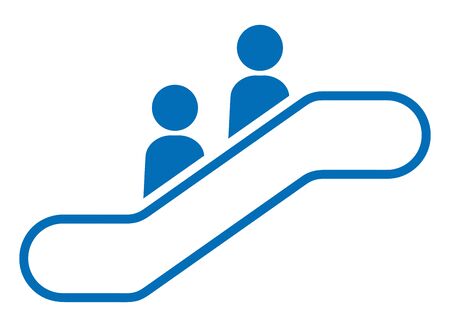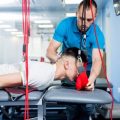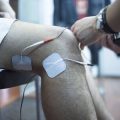Introduction to Measuring Outcomes in Cognitive Rehabilitation
Cognitive rehabilitation programmes are an essential component of supporting individuals with brain injuries, neurological conditions, or cognitive impairments. In the UK, the effectiveness of these services is closely monitored to ensure high standards of care and meaningful patient progress. Measuring outcomes plays a pivotal role in this process, providing a robust framework for evaluating whether interventions are achieving their intended results. By systematically tracking progress and collecting evidence-based data, British health and social care services can identify what works best for patients, adjust approaches where necessary, and demonstrate accountability to service users and commissioners. Ultimately, outcome measurement is not simply a bureaucratic exercise; it underpins continuous improvement, helps justify funding, and ensures that cognitive rehabilitation remains patient-focused and responsive to individual needs within the unique context of UK healthcare.
2. Common Outcome Measures Used in British Practice
Evaluating the effectiveness of cognitive rehabilitation programmes is crucial for both clinicians and patients, ensuring interventions are truly making a difference in people’s lives. In the UK, services utilise a blend of standardised tools, assessments, and recognised frameworks to objectively and subjectively measure progress. Below is an overview of the most commonly used outcome measures within British cognitive rehabilitation practice.
Standard Tools and Assessments
The following table summarises key outcome measurement tools frequently employed across NHS Trusts and private providers:
| Tool/Assessment | Description | Application |
|---|---|---|
| Goal Attainment Scaling (GAS) | A structured method that sets personalised goals and evaluates the extent to which these goals are achieved. | Widely used for patient-centred goal tracking; allows for tailored intervention outcomes. |
| Patient-Reported Experience Measures (PREMs) | Questionnaires capturing patients’ perspectives on their care experience and perceived outcomes. | Assesses satisfaction and engagement; influences service improvement. |
| Cognitive Assessment Batteries (e.g., ACE-III, MoCA) | Standardised tests measuring domains like memory, attention, language, and executive function. | Provides baseline data and monitors cognitive changes over time. |
| The Functional Independence Measure (FIM) | Measures the level of a patient’s disability and indicates how much assistance is required for daily activities. | Useful in multidisciplinary settings to assess progress towards independence. |
NHS-Endorsed Frameworks
The NHS Outcomes Framework underpins most local evaluation strategies. This framework emphasises person-centred care, promoting the use of both clinical and patient-reported outcomes. The integration of PREMs alongside traditional cognitive assessments ensures a holistic view of progress—valuing not just clinical change but also patient satisfaction and quality of life improvements.
Multi-Disciplinary Collaboration
Outcome measurement is often a collaborative process involving occupational therapists, neuropsychologists, speech and language therapists, and patients themselves. Regular team meetings are held to review assessment results, discuss ongoing needs, and adjust therapy plans accordingly. This shared approach helps maintain high standards across British services while fostering trust between professionals and those they support.
The Role of Personalisation in Measurement
A defining feature of British practice is personalisation—outcomes are not solely defined by broad metrics but also by what matters most to each individual. Goal Attainment Scaling exemplifies this ethos by making every patient’s unique objectives central to programme evaluation.

3. Emphasising Patient-Centred Success
One of the most distinctive features of cognitive rehabilitation services across the UK is their commitment to patient-centred care. Rather than relying solely on standardised clinical outcomes, British services place a strong emphasis on what matters most to each individual. This approach ensures that the measurement of success is not only clinically valid but also personally meaningful.
Incorporating Personal Goals
The process typically begins with collaborative goal setting. Patients are actively encouraged to articulate their own aspirations—whether these involve returning to work, regaining independence at home, or improving communication skills. Clinicians use structured interviews and validated goal-setting tools, such as the Goal Attainment Scaling (GAS), to capture these unique aims. By integrating patient goals into the assessment framework, services can tailor interventions and track progress in a way that truly reflects individual priorities.
Measuring Satisfaction and Lived Experience
Beyond clinical improvements, British cognitive rehabilitation programmes routinely gather feedback on patient satisfaction and lived experience. Services may employ qualitative interviews, satisfaction surveys, or patient-reported outcome measures (PROMs) to understand how patients perceive their journey through rehabilitation. This feedback provides invaluable insight into whether interventions are genuinely making a difference in people’s everyday lives.
Ensuring Meaningful Outcomes
By weaving together objective data and personal narratives, UK services aim to ensure that outcome measures resonate with those receiving care. Regular reviews and open dialogue between patients, families, and professionals help maintain a focus on what feels meaningful and valuable. Ultimately, this holistic and participatory approach not only enhances engagement but also supports long-term recovery by aligning success metrics with individual life goals.
Role of Multidisciplinary Teams in Tracking Outcomes
One of the defining features of cognitive rehabilitation programmes in the UK is the strong emphasis on multidisciplinary teamwork. British services bring together a range of professionals and stakeholders—each with their own expertise—to ensure that outcome measurement is both robust and meaningful to patients and their families. This collaborative approach not only enriches the assessment process but also ensures that progress is viewed from different perspectives, offering a holistic picture of each individual’s journey.
The Key Players in Outcome Tracking
Within UK cognitive rehabilitation services, the core team typically comprises therapists (such as occupational therapists and speech and language therapists), neuropsychologists, and family carers. Each group plays a distinct role in monitoring outcomes:
| Role | Main Contributions to Outcome Tracking |
|---|---|
| Therapists | Administer standardised assessments, observe daily functional changes, and deliver hands-on interventions |
| Neuropsychologists | Lead formal cognitive testing, interpret complex data, and advise on goal-setting strategies |
| Family Carers | Provide real-world observations, report on daily life improvements or challenges, and support ongoing care at home |
Collaborative Interpretation of Results
This multidisciplinary approach fosters a shared understanding of what constitutes meaningful progress for each individual. Regular team meetings—often called case conferences or review meetings—allow all parties to discuss assessment results, share observations, and jointly decide on next steps. This process ensures that no single viewpoint dominates; instead, outcome interpretation benefits from clinical expertise, patient experience, and family insight.
The Importance of Patient-Centred Communication
British services place great value on ensuring patients and their families are active participants in outcome tracking. Professionals take time to explain assessment results in clear, accessible language—avoiding jargon—and encourage questions from patients and carers. This inclusive communication style helps everyone involved understand what the measured outcomes mean for day-to-day life, future goals, and potential adjustments to the rehabilitation plan.
A Model for Best Practice
The collaborative model used by UK cognitive rehabilitation teams stands as an exemplar of best practice in outcome measurement. By integrating clinical rigour with personal experience, these teams are better equipped to track success in ways that truly matter to those they serve.
5. Challenges and Opportunities in Outcome Measurement
Measuring outcomes in cognitive rehabilitation within British services is not without its challenges. One of the most pressing barriers remains resource constraints, as NHS trusts and local authorities often operate under tight budgets. This can limit the availability of staff trained in outcome measurement tools or restrict access to specialist assessments. Furthermore, time pressures on clinicians may result in inconsistent data collection, making it difficult to draw reliable conclusions about programme effectiveness.
Another significant challenge is data management. With numerous services collecting patient data across different platforms, ensuring consistency and security can be a daunting task. The need for robust data protection—particularly given the sensitive nature of cognitive health information—is paramount in the UK context, especially with strict adherence to GDPR regulations. These requirements can complicate the process of sharing outcome data between multidisciplinary teams or across regions.
Despite these obstacles, there are exciting opportunities emerging through advances in digital health technology. Many British services are exploring electronic health records and bespoke software solutions that facilitate real-time tracking of patient progress. Digital platforms allow for more standardised outcome measurement, easier aggregation of anonymised data, and even remote monitoring, which is particularly valuable for patients in rural or underserved areas.
The ongoing development of national outcome frameworks and digital interoperability standards also holds promise for improving consistency and quality in reporting. Collaborative initiatives led by NHS England and partner organisations aim to streamline processes and foster best practice sharing across cognitive rehabilitation teams.
While practical barriers persist, continued investment in digital infrastructure and workforce training offers hope for more comprehensive and meaningful outcome measurement in the future. By embracing these opportunities, British cognitive rehabilitation services can further enhance their ability to demonstrate impact, improve care delivery, and ultimately support better outcomes for people living with cognitive impairments.
6. Future Directions for Outcome Assessment
As cognitive rehabilitation programmes continue to develop across the UK, there is a growing emphasis on embracing innovation and inclusivity in outcome assessment. One of the most promising trends is the integration of digital tools into both therapy delivery and outcome measurement. Mobile applications, online portals, and wearable devices are enabling clinicians to gather real-time data on patient progress, which helps in providing more individualised feedback and support outside of traditional clinical settings.
Standardising data collection processes is another key area of focus within British services. By adopting unified frameworks and validated outcome measures, services can ensure greater consistency when evaluating programme effectiveness. This not only facilitates comparison across regions and providers but also strengthens the overall evidence base for cognitive rehabilitation. The National Institute for Health and Care Excellence (NICE) continues to play a pivotal role in developing guidelines that support such standardisation efforts.
Ensuring that outcome measures remain relevant for diverse communities is crucial as well. The UK’s multicultural population means that cognitive rehabilitation services must be sensitive to cultural, linguistic, and socioeconomic differences. Emerging initiatives include translating assessment tools into multiple languages, engaging community representatives in measure development, and piloting culturally adapted interventions. These steps help guarantee that outcomes truly reflect improvements in quality of life for all service users.
Looking ahead, British services are also exploring collaborative approaches to outcome assessment. Partnerships between NHS trusts, universities, technology companies, and patient advocacy groups are fostering innovation through shared expertise and resources. Pilot projects testing artificial intelligence–driven analysis or remote monitoring solutions are already underway, showing promise in streamlining assessment processes while maintaining high standards of care.
Ultimately, the future of outcome measurement in cognitive rehabilitation will depend on balancing technological advancement with personalised care. By staying attuned to emerging trends and prioritising the needs of diverse populations, British services can ensure their programmes remain effective, equitable, and responsive for years to come.


